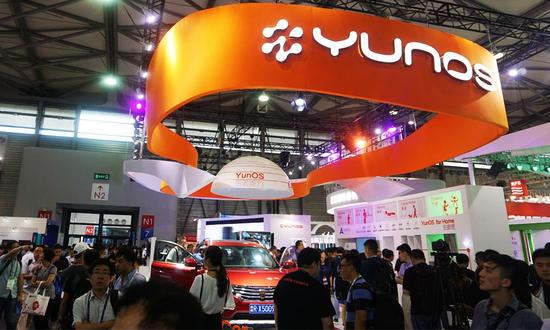Qian Tongxin
Where is the world's smartest person? The answer in the past may be Google, Facebook or Apple, but now more and more the answer is: China.
Recently, Trump’s immigration policies and work bans have allowed Chinese technology companies that are developing “Eastern Silicon Valley†to have the ability to search for talent globally more than ever before.
At the GDC Game Developers Conference held in San Francisco last week, Tencent, a Chinese technology giant, made a huge advertisement at the conference: "Tencent Games recruits engineers and software engineers to join us." Standing World's Perfect World COO Lu Xiaoyun quietly commented: “Tencent’s move is smart, and the game developers are all here. They can all be caught.â€
Baidu CEO Li Yanhong, one of the BAT’s Big Three, publicly stated that “China has ushered in a golden period for attracting talent.†He also hinted that Trump’s immigration policy may be affecting the United States’ brain drain.
When the United States makes restrictions on the free movement of human resources, China opens its hands and actively embraces the world’s top talents. The Chinese government has even set up a national management department for foreign experts to draft a talent strategy, and holds a global conference each year to discuss how to attract the most advanced talents to China.
Taking Shenzhen as an example, Shenzhen attracted more than 1,200 "elite talents" in 2015, of which 74 were from overseas experts. The biggest stimulus in the introduction of new talents is the “excellent talent†policy. This policy is open to foreigners from 24 countries. The maximum reward is a one-time subsidy of nearly $1 million or 2,200 square feet of 10-year free apartments.
In addition to introducing talents to China, another option for Chinese companies is to set up companies in the United States and hire local skilled personnel. Taking Baidu as an example, Baidu established artificial intelligence labs in Silicon Valley to recruit the world's smartest people in deep learning and big data.

Last year, Chen Tianqiao, who announced his donation of 100 million U.S. dollars to support brain science research at the California Institute of Technology, also submitted two proposals as a member of the Chinese People's Political Consultative Conference, including "Increase investment to comprehensively promote and improve mental disorders in the brain through basic research in brain science. "Therapeutic Treatment" and "Establishing Overseas R&D Bases, Recruiting Top Researchers Worldwide, Making the Most Contributions to China's Development."
Although Chen Tianqiao’s proposal to build the laboratory overseas has once again caused widespread controversy, Chinese brain scientists represented by Chou Zilong have unanimously agreed that Chen Tianqiao’s overseas laboratories are actually serving overseas markets, and that those patents will be tested overseas in the future. Room owned. However, in his letter to these scientists, Chen Tianqiao wrote: "We hope to jointly promote the development of brain science research in China."
In the past, the United States almost monopolized all high-tech industries and formed talented highlands in the development of nearly a century. But now this trend is changing. As technology is increasingly seen as a competitive element and key asset among major powers in the coming decades, China is catching up with artificial intelligence and machine automation.
If one day, American technology giants such as Apple, Microsoft, and Qualcomm have suddenly announced that they want to move global R&D centers to Shenzhen, Taipei, or Tokyo instead of Silicon Valley or Seattle, the talent of these cities will be Benefit from working with leading global technical personnel.
When Li Yanhong heard that Trump's advisors complained that three-quarters of Silicon Valley's CEOs were immigrants, he felt that China's opportunity had come. “Many Silicon Valley entrepreneurs have expressed concern that the US’s ability to innovate will decline, especially after Trump’s election,†said Li Yanhong. “I sincerely hope that talented people from different countries can come to China to help China innovate in the world. Plays a more important role."
In addition to developing talent, China also hopes to build the next "Silicon Valley." Ma Huateng (founder of Tencent) proposed to create a "Bay Area" technology that uses radiation from Guangdong, Hong Kong, and Macao. According to consulting firm Zero2IPO, in the first 11 months of last year, the Chinese government's venture capital and PE investment quotas of 1.15 trillion yuan were encouraging.
Learning Silicon Valley is also actively learning about the culture of Silicon Valley. The influence of the giant Silicon Valley on China is enormous and it has also become a target for Chinese companies to follow. China is working hard to create companies with international influence such as Apple, Google, and Amazon.
It's no wonder that outside of Google's visitor center, most of the robots who line up for photography are Chinese before the sculpture. After all, this is the most heart-warming theme of American culture.
The product uses a brushless motor, which has excellent stability, drives the operation of the fan blades, and increases the wind power by more than 80%. 360° manual rotation can achieve a large area of cooling and comfort. The wind is loud and the sound is light, does not affect sleep and mood, and enjoys a soft and comfortable breeze.
Table Fan,Mini Rechargeable Table Fan,Small Size Table Fan,Mini Table Fan
Dongguan Yuhua Electronic Plastic Technology Co.,Ltd , https://www.yuhuaportablefan.com